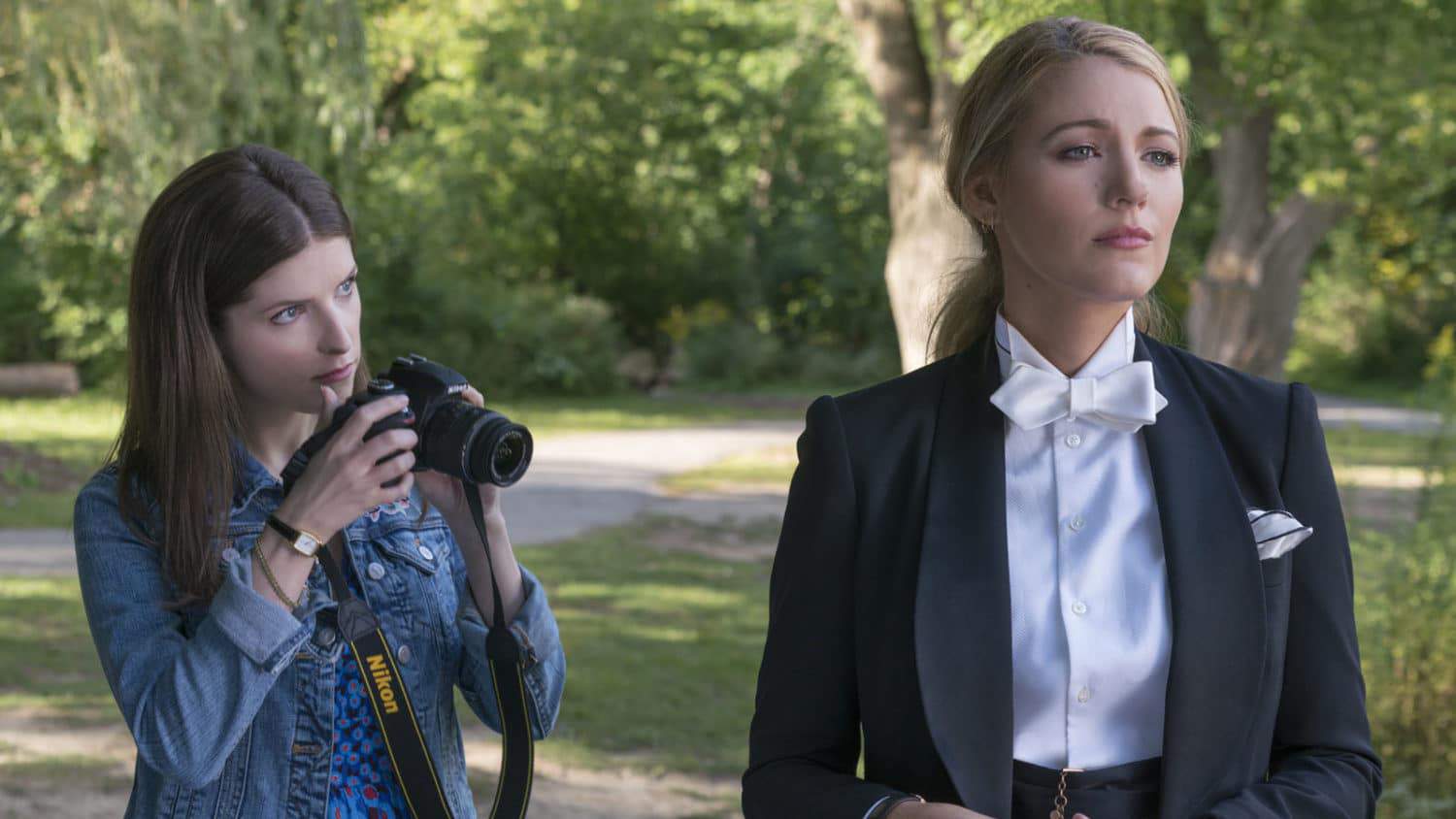
Ah, the psychological thriller. The genre of brain-bending, double-crossing, paranoia, plot twists, and a whole lot of secret identical twins. With A Simple Favor, director Paul Feig attempts to take on the genre with an extra helping of humor the way his 2015 Spy did for spy films. A Simple Favor makes for a sufficiently stylish and entertaining two hours, but it is, unfortunately, the weaker of the two efforts, partly thanks to one key difference: while Spy pays homage and makes fun of tropes associated with its parent genre in equal measure, A Simple Favor appears to lack the same self-awareness. It plays through some of the most hackneyed psychological thriller narrative beats and plot devices earnestly and then proceeds to find humor in largely unrelated places, like Anna Kendrick being awkward.
As is to be expected of a pastiche nearing the border of satire, the plot of A Simple Favor is familiar in several regards. Overall, it falls into the general category of the dual protagonist/antagonist cat-and-mouse type thriller, where two people—usually of the same sex—are caught in a web of escalating obsession where at least one of this duo is actively seeking to both destroy but in a certain sense become the other.
Think of The Prestige, Black Swan, The Talented Mr. Ripley, or going way further back, even All About Eve. Scholars have widely noted the homoerotic subtext often found in these narratives, but when it comes to the female-lead version, things haven’t been left to mere subtext since the 1990s. Any time you see a thriller film with a certain degree of “edge” (read: characters with questionable mental health) featuring multiple female leads, girl-on-girl action is practically a guarantee. Think of Steven Soderbergh’s Side Effects or Joe Wright’s Hanna. Jennifer’s Body, Mulholland Drive, Basic Instinct. Just the way female desire as a whole used to be pathologized in the age of “hysteria,” lesbian desire continues to be treated as part and parcel of female insanity. It has reached the point where a movie meeting the criteria listed above not having a “lesbian moment” would be in itself a plot twist as surprising as Ben Mendelsohn not being evil or Adam Driver keeping his shirt on.
As is so often the case in these situations, the problem isn’t the individual instance, but the trend. I am not saying that films should never fall into this pattern, because first of all, that would be censorship, which I have no interest in promoting. But this narrative of repressed innocent (Anna Kendrick’s Stephanie, complete with Peter Pan collars and cat-patterned socks) exploring her “inner darkness” through a relationship with an alluring but destructive femme fatale type (Blake Lively‘s Emily, styled as the Burlesque version of Katherine Hepburn) building up to at least one “lesbian moment” that may or may not have any narrative relevance doesn’t just have some decidedly ugly implications, it’s become the exact opposite of “thrilling.” It’s tired, dull in its predictability, as lazy in its repetition as the most uninspired of reboots.
Throughout media history, particularly the history of mainstream film, there has been a concerning thread of conflating empowerment and exploitation. Films like A Simple Favor are marketed as responses to the demand for more female-led films, and quite often received in kind. They are applauded because they meet some almost depressingly basic criteria—i.e. the main characters are women, they pass the Bechdel test—but in the excitement of seeing anything slightly different and moving in a promising direction, there can be a hesitation to voice concerns, a “beggars can’t be choosers” mentality. But these films quite often still have issues, and it’s worth discussing them.
That doesn’t mean these films should be discredited and demonized, only that it is worth addressing both the pros and the cons. And in the case of A Simple Favor and female-lead thrillers that play the “crazy lesbian” card, there are some definite cons. The trope inherently plays into misogynistic fantasies about the “perverse” nature of women socializing amongst themselves—i.e. what women do when we’re alone, because the descent into both lesbianism and darkness occurs in these films almost always in the absence of men (in the company of men, these female characters usually display only heterosexual desires).
Please note that I don’t say this because I read it in an academic journal or some other thinkpiece online. I say this from personal experience. As a student at a women’s college, I am well aware of the sort of male fantasies that exist about what happens in all-female social environments, and a number of them play out like the Pornhub version of Mulholland Drive or Black Swan. Here’s the basic gist: in the absence of men, women become emotionally unbalanced lesbians, with the lesbianism, sexual perversion, and psychosis functioning as a fundamentally linked and inevitable triumvirate.
I’ve heard the same story told a dozen different ways from drunk guys at parties, read it in highly sexual and disturbingly violent hate mail, and encountered in more restrained but no less fantastical versions in major publications. Let it be noted, for example, that laughing at Jay Dixit’s jaw-droppingly absurd 2001 Rolling Stone article about “The Highly Charged Erotic Life of the Wellesley Girl” continues to be a group bonding experience for actual Wellesley girls because it is so far removed from any semblance of reality that it’s easier to just treat it like a joke than get mad over how incredibly skewed it is.
Of course, movies, Hollywood ones especially, are basically giant reservoirs of fantasy. But this one is seriously overdone. It’s predictable to the point of being inherently boring, turning films that could have been new and different into just one more instance of the same old story. Back in 2015, Spy managed to pay homage to the spy film while avoiding many of the sexist tropes prevalent among many of the genre’s most iconic entries. Even in the hands of the same director, A Simple Favor remains too besotted with some of the most overplayed psychological thriller tropes to recognize them as the jokes they are.
Related Topics: Editor's Picks, Feminism, Opinions, Paul Feig, Sexuality

